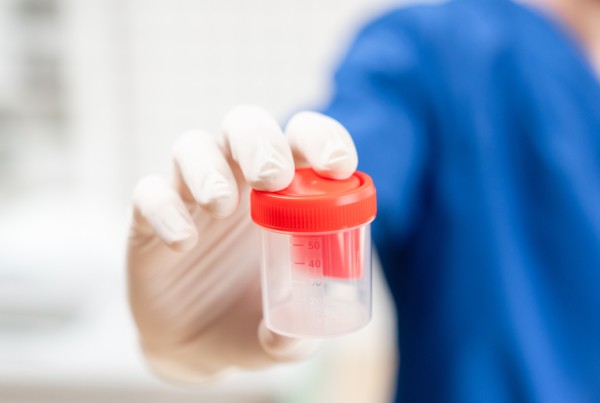When it comes to starting a family, many couples expect pregnancy to happen immediately. While an average 60% of couples will get pregnant within the first 6 months and another 20% within a year, for the rest it can take much longer. Navigating this time and the uncertainty it brings with it can be challenging. In this article, we explore how at-home fertility testing can help you plan for a family, what these kits measure, and how, together with professional help, they can be a useful tool on your journey to parenthood.
Empowering yourself with fertility knowledge.
The American Society for Reproductive Medicine (ASRM) recommends that, provided there are no other underlying health issues, couples should seek help at 12 months of trying to conceive. If the female partner is 35 years of age or older, you should seek help earlier, at the 6-month mark.
Until then and even once you seek professional help, at-home fertility testing kits help you gain insight on your fertility in the privacy and comfort of your own home.
Why test your fertility?
Fertility testing can highlight potential issues which may be affecting your ability to conceive. Male and female fertility are equally responsible for difficulties in getting pregnant, making it important for both of you to be proactive about testing.
Male fertility issues often go unnoticed because there may be no obvious symptoms. Fertility tests can reveal underlying issues, such as a low sperm count, poor sperm motility, or abnormal sperm morphology. These factors can all impact the sperm’s ability to reach and successfully fertilize the egg.
For women, fertility testing looks at hormone levels, ovulation patterns, and checks for blockages in the fallopian tubes. Female testing is often more invasive and more expensive than male fertility testing.
What at home fertility testing kits measure
At home fertility tests can provide comprehensive information on both male and female fertility. While specific tests vary depending on the kit used, there are some common assessments provided by at-home options:
-
Male Fertility Tests
Sperm Quality
At-home sperm test kits typically measure concentration (the sperm count) and motility (sperm movement). These two factors are critical in determining a man’s fertility. Some kits also assess morphology, the shape of the sperm and the presence of DNA damage, both of which can impact conception.
The YO Home Sperm Test measures your motile sperm concentration, allows you to monitor any fluctuations, and records a video which you can share with your healthcare provider.
Hormonal Tests
Testosterone at-home sample collection kits can provide you with information on your levels. Low testosterone levels can signal a potential issue with fertility.
-
Female fertility tests
Ovulation Trackers
At home ovulation trackers measure luteinizing hormone (LH) levels, which surge just before ovulation. These kits help women identify their fertile window. Planning intercourse on the most fertile days increases the chances of conception.
Hormonal Tests and Ovarian Reserve Tests
Hormonal Tests measure other key hormones, such as follicle stimulating hormone (FSH) and estradiol, both of which are important for egg production and overall reproductive health. Other tests make it possible to measure anti-Müllerian hormone (AMH) levels. These provide an estimation of the number of eggs remaining in the ovaries and whether or not the number is typical for the woman’s age.
At-home fertility testing kits offer convenience and privacy, are cost-effective, are generally quick and easy to carry out, and can help you identify fertility challenges earlier on. Additionally, having access to fertility information is empowering and can help you make more informed decisions on the way forward. If the results indicate potential fertility issues, it’s important to follow up with a healthcare provider or fertility specialist who can offer further testing and personalized guidance.
Key Takeaway
Fertility testing is a helpful add on to family planning. At-home kits provide a convenient, affordable, and private way for couples to assess their reproductive health, and can serve as an empowering first step in your journey to parenthood. By identifying fertility issues early on, you can take the necessary steps to address them.







